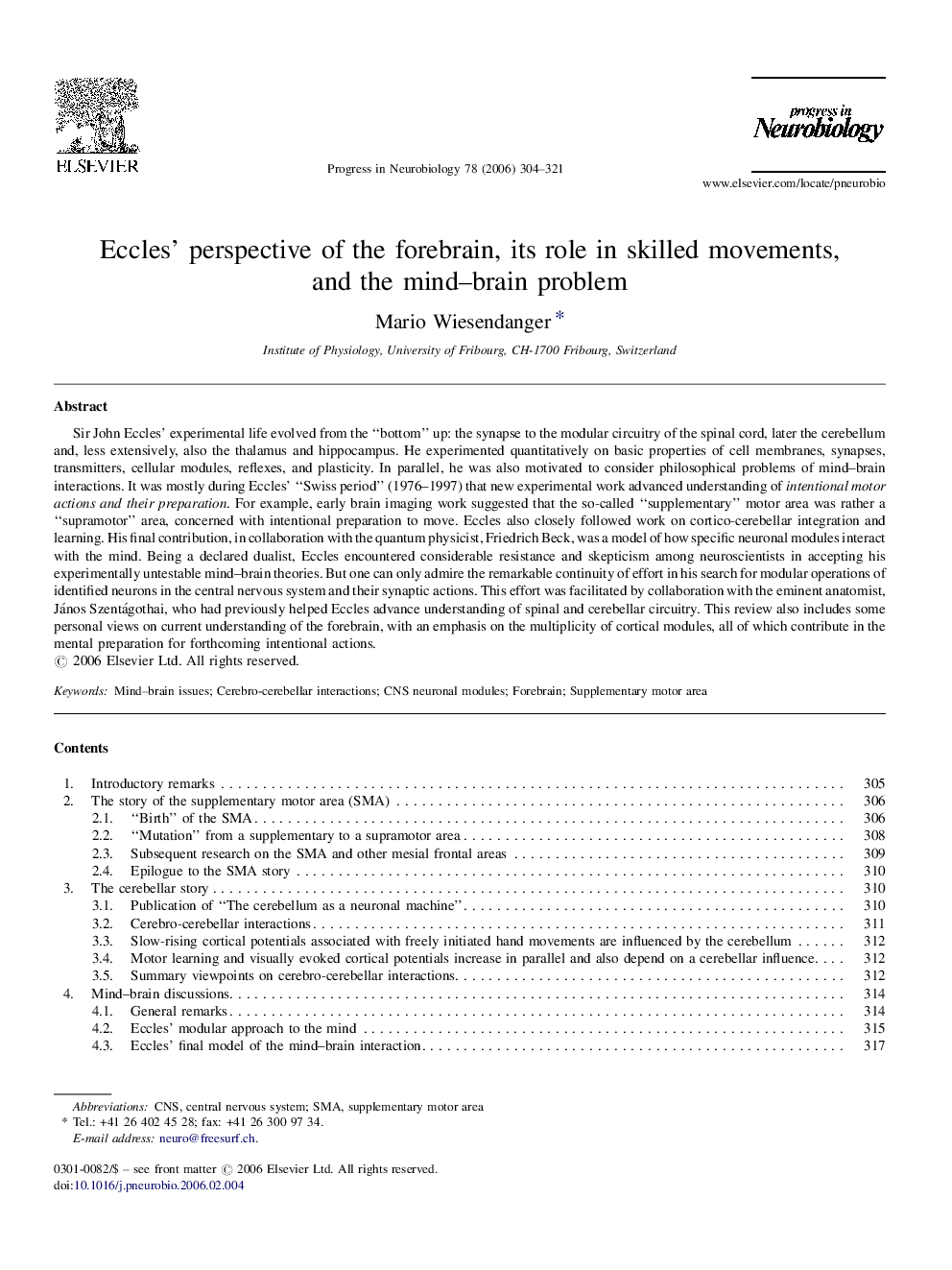| کد مقاله | کد نشریه | سال انتشار | مقاله انگلیسی | نسخه تمام متن |
|---|---|---|---|---|
| 4354069 | 1615412 | 2006 | 18 صفحه PDF | دانلود رایگان |

Sir John Eccles’ experimental life evolved from the “bottom” up: the synapse to the modular circuitry of the spinal cord, later the cerebellum and, less extensively, also the thalamus and hippocampus. He experimented quantitatively on basic properties of cell membranes, synapses, transmitters, cellular modules, reflexes, and plasticity. In parallel, he was also motivated to consider philosophical problems of mind–brain interactions. It was mostly during Eccles’ “Swiss period” (1976–1997) that new experimental work advanced understanding of intentional motor actions and their preparation. For example, early brain imaging work suggested that the so-called “supplementary” motor area was rather a “supramotor” area, concerned with intentional preparation to move. Eccles also closely followed work on cortico-cerebellar integration and learning. His final contribution, in collaboration with the quantum physicist, Friedrich Beck, was a model of how specific neuronal modules interact with the mind. Being a declared dualist, Eccles encountered considerable resistance and skepticism among neuroscientists in accepting his experimentally untestable mind–brain theories. But one can only admire the remarkable continuity of effort in his search for modular operations of identified neurons in the central nervous system and their synaptic actions. This effort was facilitated by collaboration with the eminent anatomist, János Szentágothai, who had previously helped Eccles advance understanding of spinal and cerebellar circuitry. This review also includes some personal views on current understanding of the forebrain, with an emphasis on the multiplicity of cortical modules, all of which contribute in the mental preparation for forthcoming intentional actions.
Journal: Progress in Neurobiology - Volume 78, Issues 3–5, February–April 2006, Pages 304–321